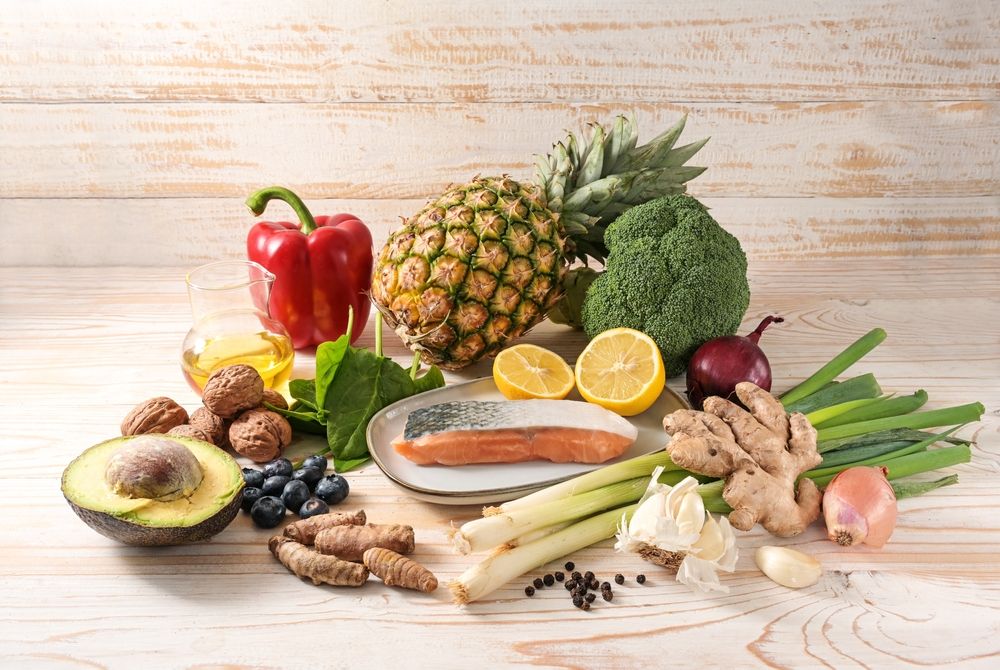Seeking to reduce inflammation and enhance your well-being? You're in the right spot. While several healthy lifestyle practices aid in inflammation reduction, including regular exercise, ample sleep, and stress management, increasing fruit consumption stands out as one of the most effective (and enjoyable) methods.
Fruits are brimming with vital nutrients such as vitamins, minerals, antioxidants, and fiber, all of which play pivotal roles in combating inflammation. Furthermore, these nutrients can bolster your immune system, regulate blood pressure, and provide antibacterial and antiviral properties, ensuring you feel fantastic.
While inflammation is a natural immune system response, chronic inflammation can lead to various health concerns, including heart disease, type 2 diabetes, and cancer. Thankfully, many fruits, including those highlighted below, possess anti-inflammatory properties that can help mitigate chronic inflammation and decrease the risk of chronic diseases.
We consulted Trista Best, RD, a registered dietitian with Balance One Supplements, who shared insights on the top 10 fruits for reducing inflammation and enhancing overall health. Whether savored on their own as a snack, blended into smoothies, or integrated into meals, these fruits offer a delicious addition to your anti-inflammatory diet. Keep reading for more.
1) Berries
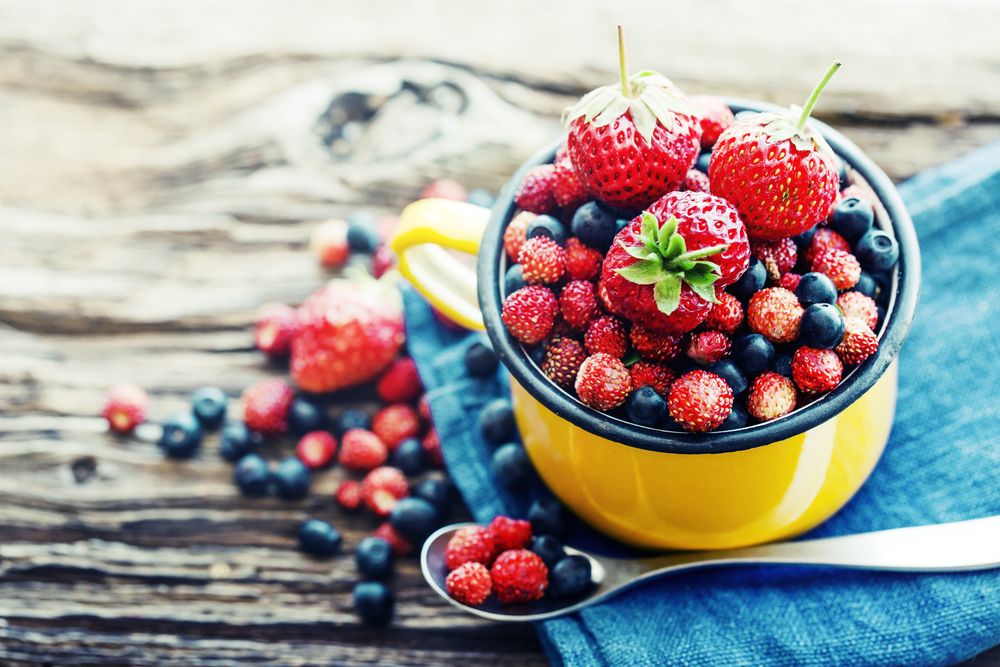
Berries such as blueberries, strawberries, raspberries, and blackberries are abundant in antioxidants like flavonoids, which studies on animals suggest can aid in inflammation reduction within the body. Trista Best, a registered dietitian with Balance One Supplements, emphasizes, "Berries are bursting with antioxidants and anti-inflammatory components such as flavonoids and vitamin C, which are instrumental in fighting inflammation and oxidative stress in the body." She recommends integrating a diverse selection of berries into your diet to bolster overall health and minimize the likelihood of chronic ailments.
2) Pineapple
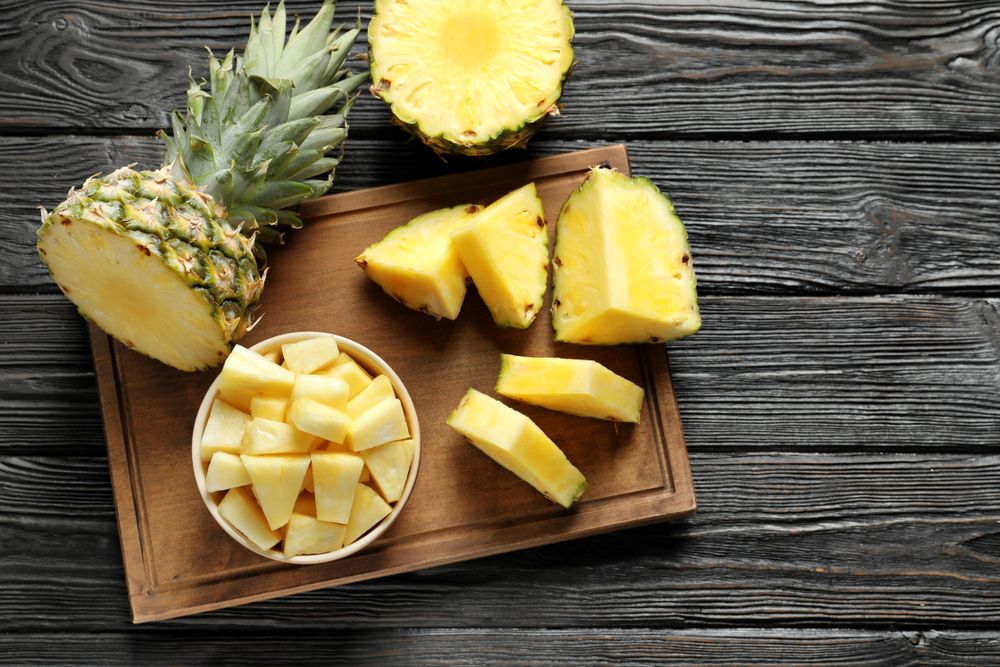
Pineapple, a tropical fruit, is rich in bromelain, an enzyme renowned for its potent anti-inflammatory attributes, which aid in reducing swelling and bruising. Additionally, pineapple serves as an excellent source of vitamin C, offering 48 milligrams per 100-gram serving according to the USDA, thereby contributing to immune system fortification.
Best notes, "Thanks to its digestive enzyme content, incorporating pineapple or its juice into your diet regularly can assist in alleviating inflammation, especially in conditions such as arthritis, while also promoting digestive wellness."
3) Avocado
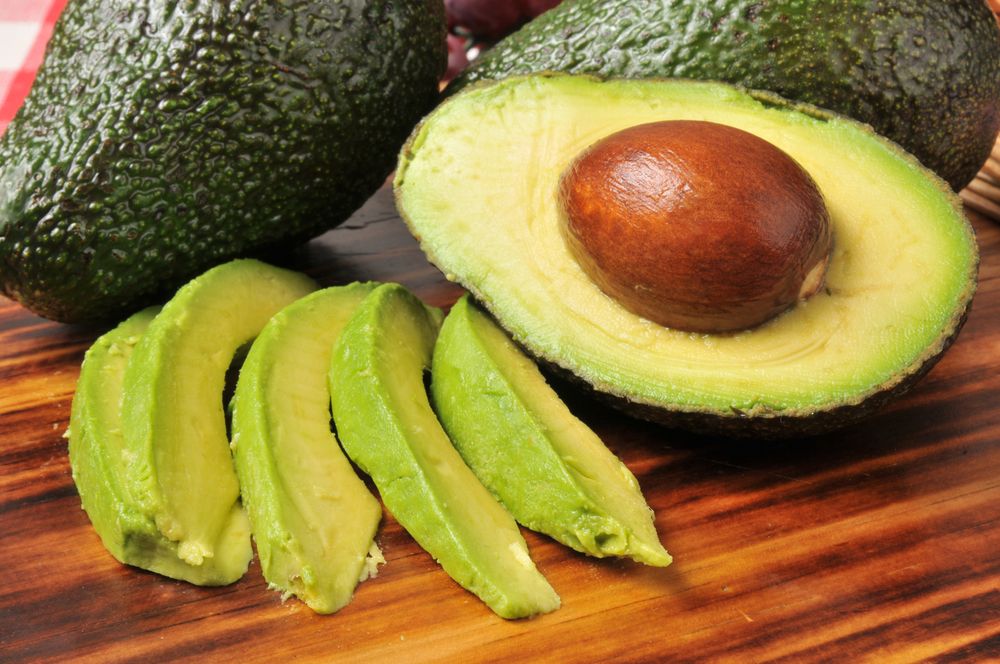
Despite common misconception, avocados are classified as fruits and possess properties that research indicates may aid in inflammation reduction. Trista Best highlights, "Avocados are abundant in monounsaturated fats and antioxidants like vitamin E, both of which have demonstrated abilities to diminish inflammation and bolster cardiovascular well-being." She adds, "Incorporating avocados into your diet can also contribute to regulating blood sugar levels and enhancing satiety, rendering them a versatile and nourishing fruit option."
4) Oranges
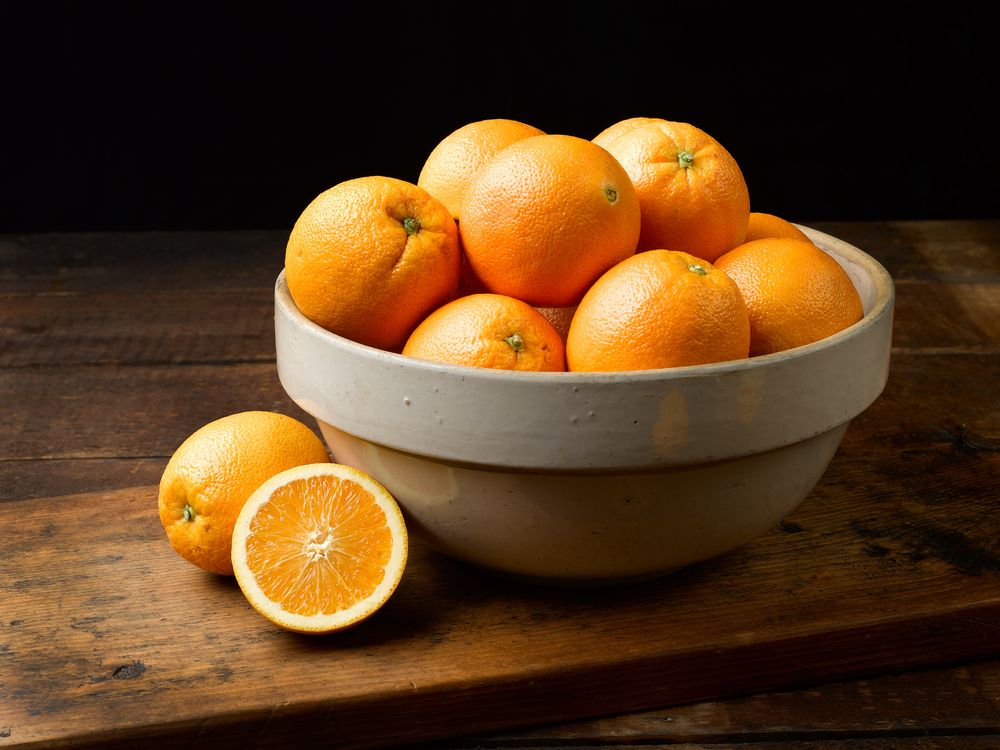
Oranges, a beloved fruit, are renowned for their high vitamin C content. A 2015 study suggests that consuming just 500 milligrams of vitamin C twice daily can aid in inflammation reduction and enhance immune system function.
Trista Best notes, "Oranges are rich in vitamin C, a potent antioxidant renowned for its ability to combat inflammation by neutralizing free radicals within the body. Furthermore, oranges contain flavonoids with anti-inflammatory properties that may promote cardiovascular health and bolster immune function."
5) Papaya
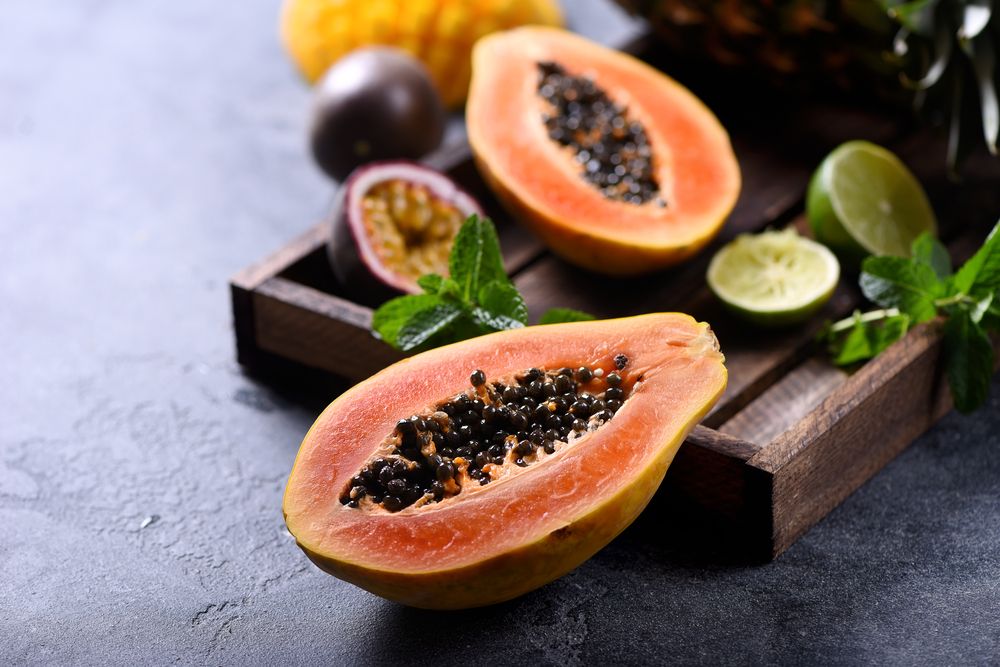
Papaya is endowed with an enzyme known as papain, which, as indicated by one animal study, exhibits anti-inflammatory qualities beneficial for enhancing digestive wellness. Trista Best explains, "Papaya harbors papain, an enzyme akin to bromelain found in pineapple, known for its anti-inflammatory characteristics and digestive support. Additionally, this tropical fruit boasts high levels of vitamin C, beta-carotene, and various antioxidants, rendering it a valuable inclusion in an anti-inflammatory dietary regimen."
6) Cherries
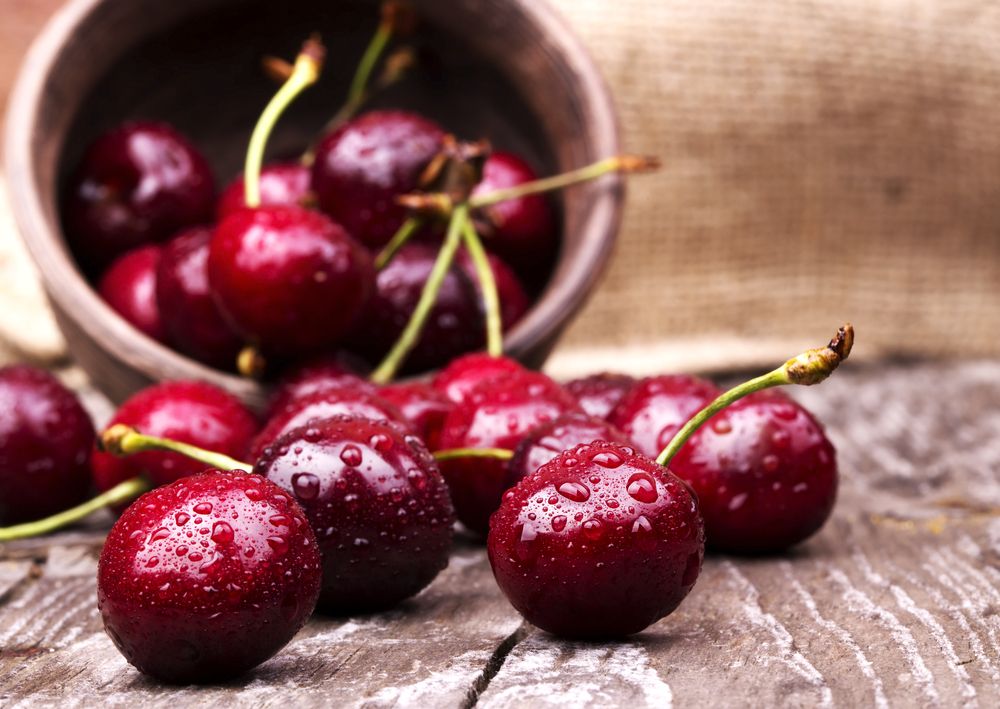
Cherries are abundant in antioxidants known as anthocyanins, which have demonstrated effectiveness in inflammation reduction and potentially alleviating symptoms associated with arthritis and gout. Trista Best highlights, "Cherries, particularly tart cherries, are celebrated for their significant anthocyanin content, which exerts potent anti-inflammatory properties. Incorporating cherries or cherry juice into your diet may aid in diminishing muscle soreness, easing arthritis symptoms, and decreasing levels of inflammatory markers in the body."
7) Apples
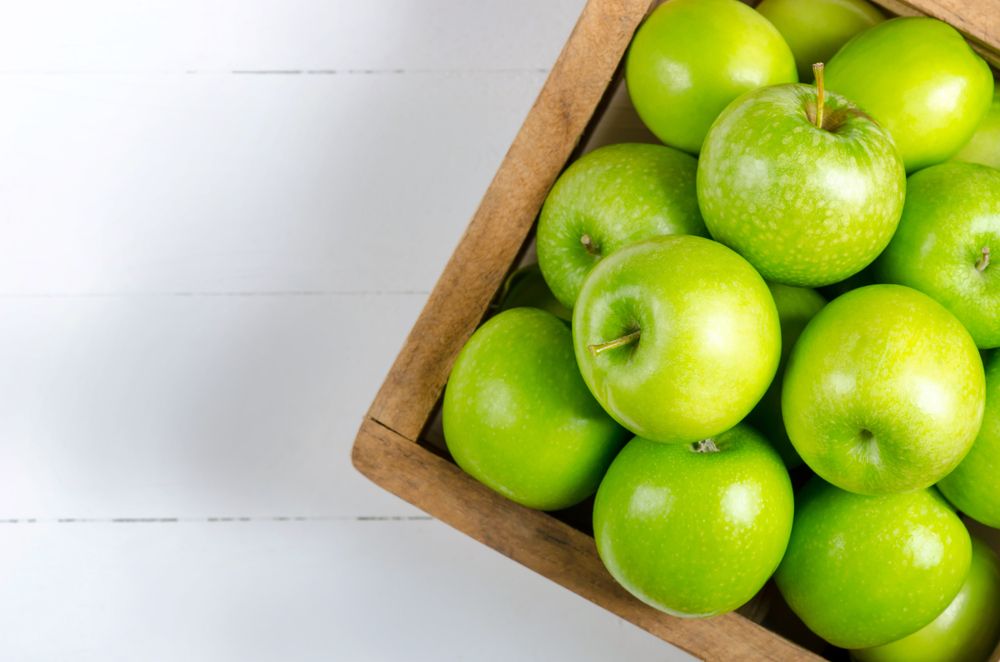
Apples are renowned for their high fiber and antioxidant content, which, as per a 2023 review, can aid in inflammation reduction and enhance digestion. Trista Best elucidates, "Apples provide a significant source of quercetin, a flavonoid known for its anti-inflammatory and antioxidant attributes." She continues, "Thanks to their rich fiber and phytonutrient composition, incorporating apples into your diet may contribute to inflammation reduction, safeguard against heart disease, and bolster lung function."
8) Kiwi
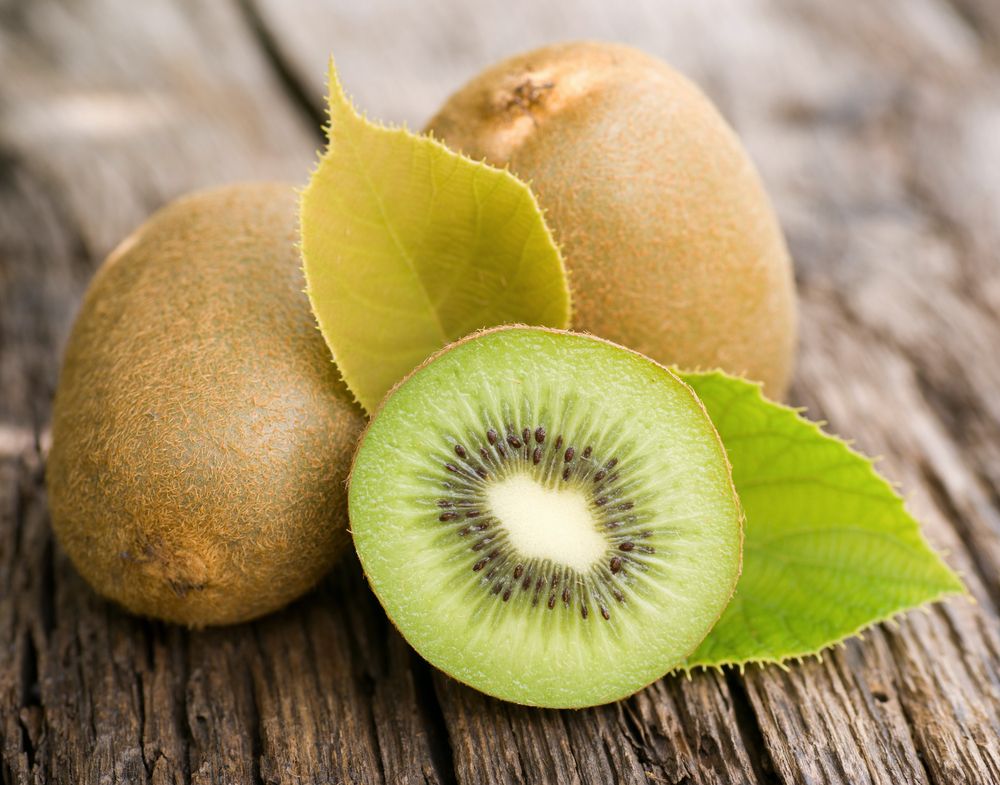
With a remarkable 93 milligrams of vitamin C per 100-gram serving, kiwi stands out as an excellent fruit for combatting inflammation, given its antioxidant properties that bolster immune health.
Trista Best highlights, "Kiwi boasts significant levels of vitamin C, vitamin E, and polyphenols, all of which play roles in its anti-inflammatory properties. Adding kiwi to your diet can aid in inflammation reduction, enhance digestion, and fortify immune function, thanks to its dense nutrient profile."
9) Watermelon
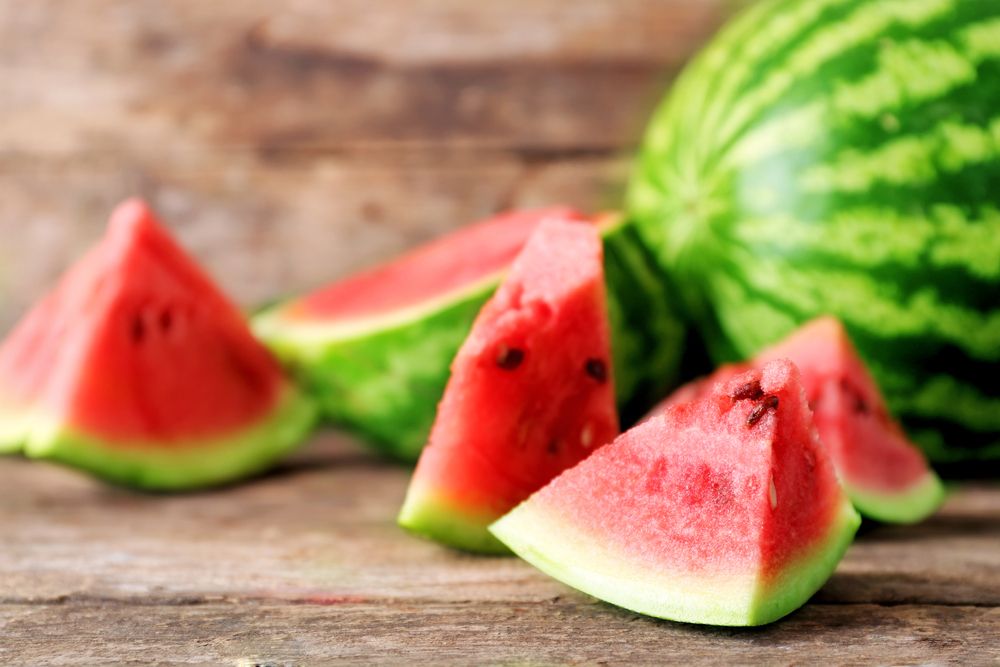
This delightful summer fruit harbors a powerful antioxidant known as lycopene. As indicated by a 2021 study, lycopene holds promise in inflammation reduction, brain health improvement, and defense against specific diseases.
"Watermelon is rich in lycopene, known for its potential to lower the risk of chronic ailments such as heart disease and cancer," explains Trista Best. "Moreover, being hydrating and low in calories, watermelon serves as a refreshing and nutritious option for combating inflammation."
10) Grapes
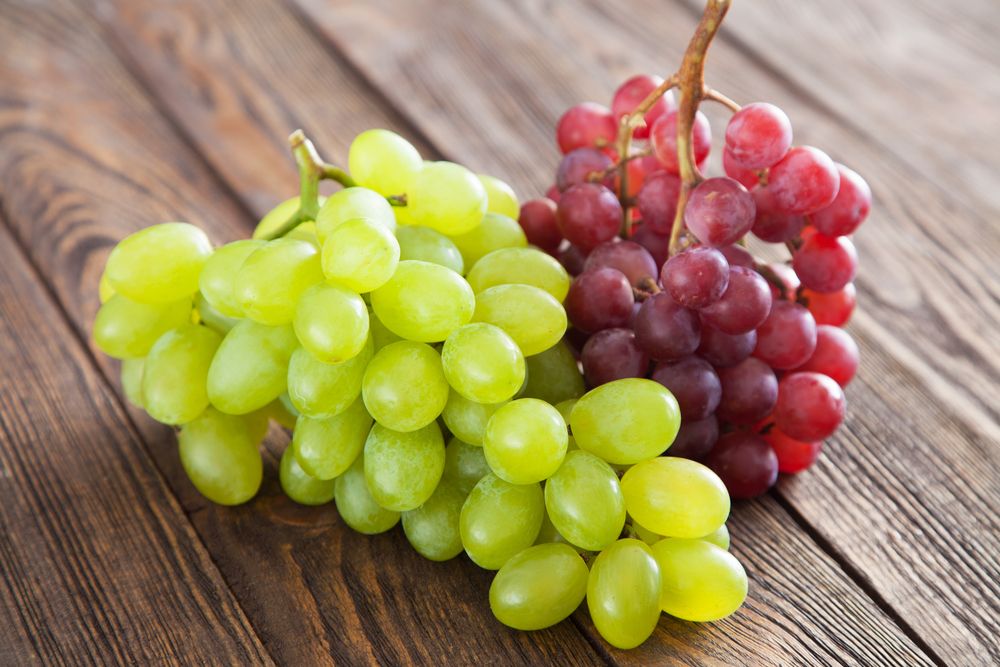
Grapes are rich in antioxidants known as polyphenols, which studies suggest can effectively reduce inflammation and mitigate the risk of chronic diseases.
According to Trista Best, "Grapes, particularly red and purple varieties, are abundant in resveratrol, a compound renowned for its anti-inflammatory and antioxidant attributes. Incorporating grapes or grape-derived products such as juice or raisins into your diet may assist in inflammation reduction, shield against heart disease, and promote brain health."

